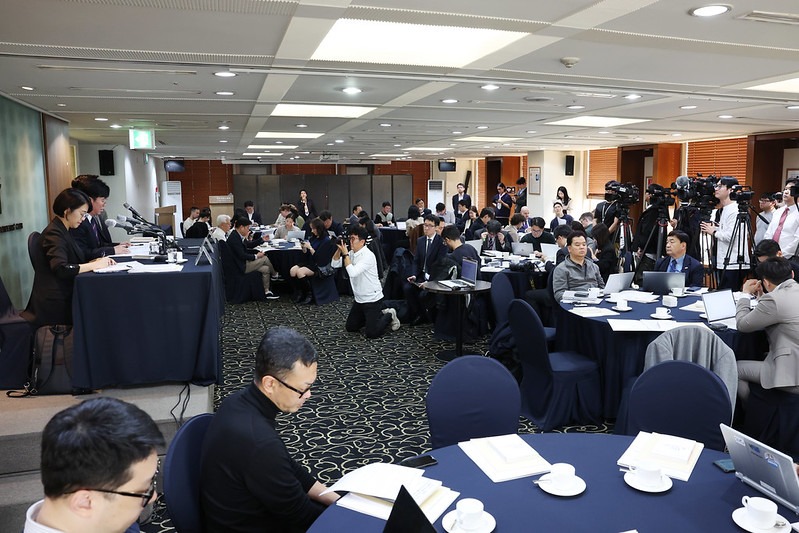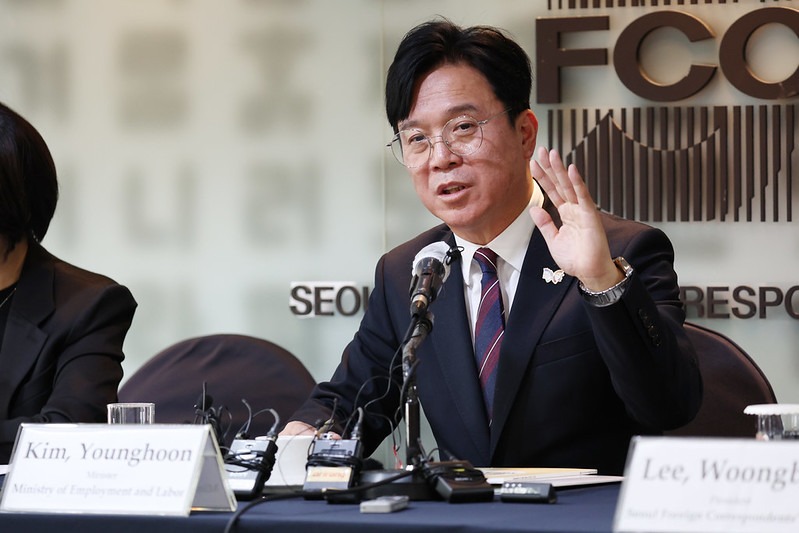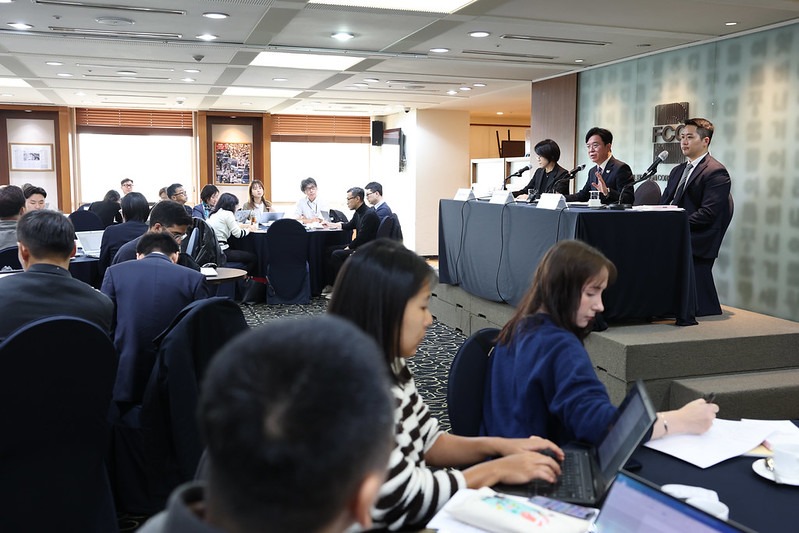On October 20, the Seoul Foreign Correspondents' Club hosted the Minister of Employment and Labor, Kim Young-hoon, for a briefing and Q&A session. Following the recent developments in Korean labor law, the international press invited the Minister to speak about these major legal changes.
Labor law is often a topic of international discussion when it comes to Korea, as the country is frequently perceived as having strict labor regulations.

On 24 August 2025, the Korean parliament passed the “Yellow Envelope Act,” representing a historic shift. The name “Yellow Envelope Act” comes from a 2014 movement when citizens sent donations in yellow envelopes to support striking workers who faced massive damage claims, turning the yellow envelope into a powerful symbol of solidarity and resistance against unfair labor lawsuits.
This amendment to the Trade Union and Labor Relations Adjustment Act (TULRAA) is significant as it strengthens and expands union rights in a country where labor law has long been criticized: long working hours, weak union power, and limited employee protection. Korea’s economic success has often been linked to this intense work culture, making this reform a considerable step forward.
These measures significantly strengthen workers’ rights, despite strong opposition from big corporations and federations including the Korea Chamber of Commerce & Industry, the Federation of Korean Industries, and the Korea Federation of SMEs. However political leaders held their position and the amendment was ultimately passed.

With labor rights and employee well-being now at the center of the national debate, this reform has drawn strong interest from the international press. The presence of the Minister of Employment and Labor, Kim Young-hoon, was an opportunity for foreign journalists to ask questions and better understand the scope of this historic legislative shift in Korea but also to raise persistent issues.
The challenges faced by international students, who often encounter a significant barrier even before entering the workforce, were also highlighted. Many come to Korea to study the language, supported by government scholarships, yet find themselves unemployed upon graduation. Their main skill, their proficiency in Korean, is not rare enough to secure job opportunities.
Some graduates resort to illegal practices, such as “visa runs” or paying private companies to sponsor their visas. The Minister acknowledged these situations and, although no official measures have yet been announced, indicated that a future training program will be implemented. Aimed at international students from language or art academic background, the initiative seeks to facilitate their integration into the Korean labor market while valuing their dedication to Korean culture.

This major step forward in Korean labor legislation is widely seen as a first in a series of broader reforms. The Korean Confederation of Trade Unions (KCTU) has called on the newly elected government to adopt additional measures in favor of workers, including an anti-discrimination law and reforms to Korea’s chaebol structure and export-driven economic model.
While this model has been central to Korea’s rapid economic growth, continued development will likely depend on opening Chaebol-dominated markets to greater competition and improving employment opportunities for foreign workers.
How about this article?
- Like4
- Support0
- Amazing0
- Sad0
- Curious0
- Insightful1


